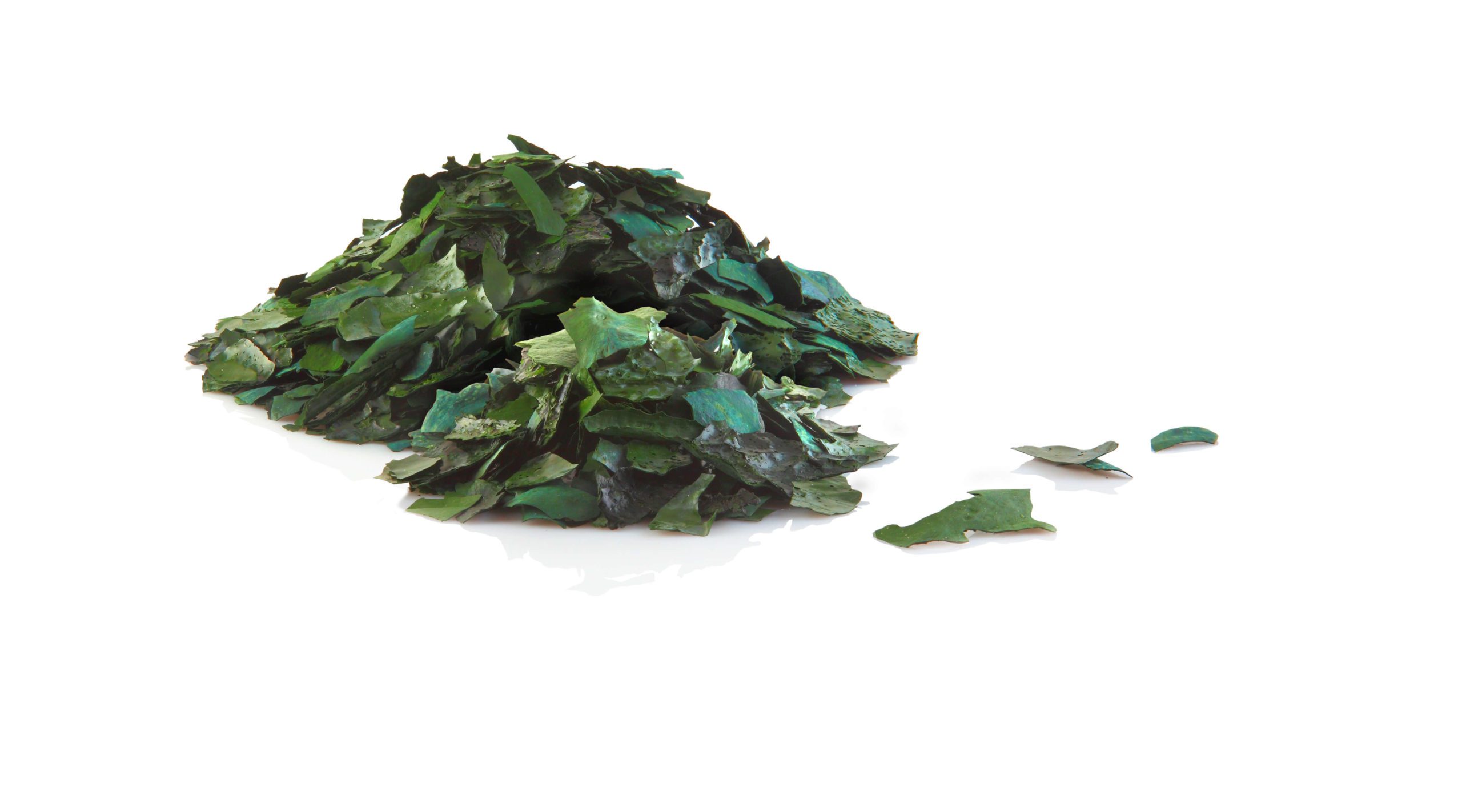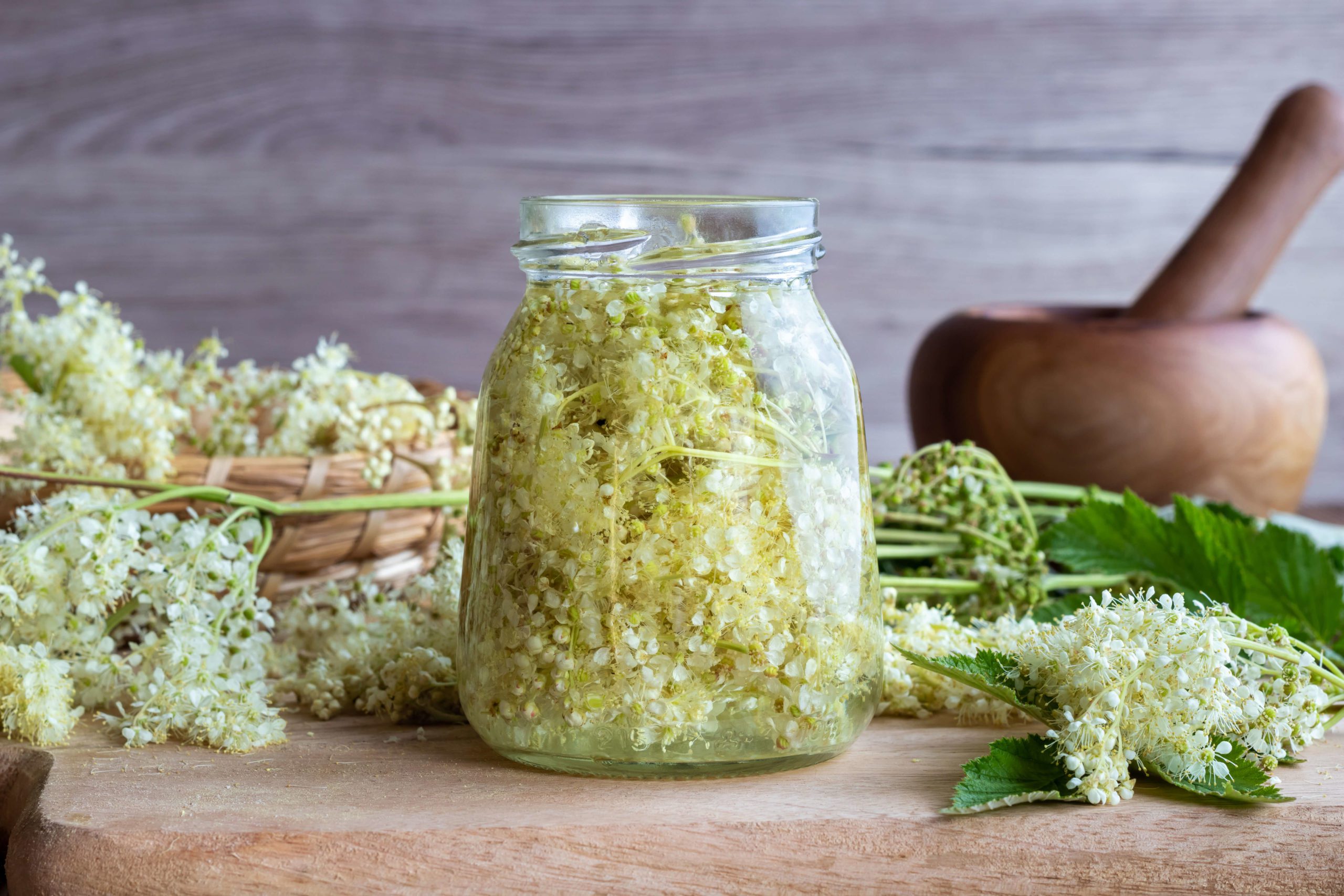Natural Anti-Inflammatory for Dogs: Our Top 12 Choices

Table of Contents
When you know your four-legged friend isn’t feeling well, it’s one of the worst feelings in the world. It also leaves many pet parents wondering if they are doing all that they can in order to ensure their pet’s happiness and well-being.
In so many cases, we find out about our pup’s distress once they are already experiencing it. Dogs are notorious when it comes to hiding pain, meaning that when they’re finally showing outward signs of discomfort, the pain has most likely progressed considerably.
However, when it comes to pain in dogs, there are countless ways to help your dog feel better again with the help of natural anti-inflammatory for dogs.
Both natural and pharmaceutical anti-inflammatory for dogs is beneficial in providing aid and comfort to their conditions.
What is Inflammation?
Inflammation is a localized swelling of a specific body part. It is most often due to injury or infection. The inflamed part of the body will often become reddened and very painful. The trouble begins when the inflammation isn’t managed and thus becomes chronic inflammation.
When experts trace the vast majority of health conditions back to their root cause, they often find they have one major thing in common: chronic inflammation. In fact, everything from allergies to cancer has inflammation as the root source.
It is extremely worrisome when you consider that many forms of inflammation don’t become apparent to pet parents until it has fully developed and spread throughout the body.
In fact, the following health conditions are all linked to chronic inflammation:
- Diabetes
- Periodontal disease
- Heart disease
- Allergies
- Kidney failure
- Dementia
- Overall chronic pain
- A shortened lifespan
Luckily, there are ways that pet parents can help not only lessen current inflammation but actually prevent it from developing in the first place.
But first, let’s discuss what typically happens when pet parents realize their dog is in pain, painkillers for dogs, and why conventional methods of treating pain aren’t always the best means of doing so.
The Dangers of Conventional Anti-Inflammatory Medications
When your dog’s inflammation starts to become a serious issue, it is usually accompanied by a substantial amount of pain.
In many cases, veterinarians will prescribe a nonsteroidal anti-inflammatory drug (also known as an NSAID) in order to alleviate the source of your dog’s distress.
However, these drugs (along with other conventional medications) often come with many potential adverse reactions that pet parents should be implicitly aware of. Always make sure to visit the website of the medication in question to take a look at the potential side effects.
Not surprisingly, once pet parents become aware of the potential downsides to NSAIDs, many begin researching holistic options for reducing inflammation and relieving their dog’s pain.
The Importance of An Anti Inflammatory Diet
Thankfully, with constant advancements in the world of holistic medicine, dog owners have options when it comes to treating their pup’s inflammation and associated pain.
One of the first areas to start with is an anti-inflammatory diet.
We cannot stress the importance of diet enough. Your dog’s diet can truly be a game changer when it comes to preventing the development of a large number of ailments, including inflammation.
Choosing anti-inflammatory foods can also prevent conditions such as obesity, which in turn, can also prevent inflammation. An anti-inflammatory diet, or simply a diet that contains anti-inflammatory agents, can also prevent deadly health conditions such as heart disease and diabetes (both of which often stem from chronic inflammation).
Additionally, by choosing an anti-inflammatory diet and implementing anti-inflammatory supplements, pet parents can also prevent or slow the progression of arthritis in dogs and therefore the associated joint pain.
Avoiding Foods That Cause Inflammation
Before we dive into all of the available anti-inflammatory agents for your doggo, it is important for pet parents to know which foods they should avoid giving their four-legged friend.
Many times, a homemade diet may involve foods that promote inflammation. These foods don’t necessarily need to be done away with altogether, but it is imperative that dog owners balance the inflammatory foods with anti-inflammatory counterparts.
Dog owners should be aware that the following foods are known to cause inflammation in dogs (and in their owners):
Processed meat like:
- Hot dogs (pork, beef, chicken, and turkey hot dogs all cause inflammation!)
- Sausage
- Ham
- Bacon
- Bologna
- Meat that comes from animals raised in commercial conditions,* resulting in meat which is high in saturated fat and omega 6 (too much omega 6 and too little omega 3 causes inflammation)
- Many hard kinds of cheese**
- Egg yolk
- Refined grains (including white flour and white rice)
- Potatoes
- Polyunsaturated vegetable oils (including sunflower, corn oil, and soybean oil)
- Margarine
- Shortening
* Stick to organic, grass-fed meats!
** This excludes some hard cheeses including romano, feta, and parmesan.
Again, for dogs who are healthy and not experiencing inflammation, some of these foods don’t necessarily need to be completely avoided. However, they must be balanced with the appropriate amount of anti-inflammatory agents.
For dogs who are experiencing inflammation, pet owners should do their best to keep inflammatory foods reduced to the bare minimum when making homemade dog food.

Natural Anti-Inflammatory Options for Dogs
Many pet parents may not realize just how many anti-inflammatory herbs and foods can have powerful effects on their dogs.
In fact, many all-natural anti-inflammatory agents that people use in their day-to-day life can also benefit your pup. (Of course, always do your research before giving your dog a supplement that you take yourself. Some anti-inflammatory supplements formulated for human consumption can cause dogs great harm!)
Below, we’ve compiled a list of our top 12 anti-inflammatory choices for your beloved four-legged friend! Many of these anti-inflammatory agents can also be found in combination products.
Remember, before introducing anything new into your dog’s normal healthcare regime, always consult with a holistic veterinarian first. Your veterinarian can give you recommendations on reputable brands since these supplements are not regulated by the FDA.
Turmeric for Dogs
Curcumin, the active ingredient in turmeric, is a potent anti-inflammatory and antioxidant agent beneficial for dogs with arthritis. To ensure adequate intake, you can add organic turmeric to your dog’s food or use a commercially available turmeric supplement.
We recommend Vet-Virtue Turmeric for Dogs that are designed to help joint inflammation and mobility in dogs. They contain organic turmeric, a natural antioxidant that is known for its anti-inflammatory properties. These treats are made in the USA, are all-natural, soy-free, grain-free, and taste great for dogs.
Spirulina for Dogs
If you haven’t heard of spirulina, both you and your doggo are in for quite the treat.
This remarkable microscopic algae has incredible volumes of nutrients that can benefit your dog in more ways than you may have ever thought possible.
Of course, on topic with this article, spirulina has incredibly powerful anti-inflammatory properties too!
Previous studies on spirulina show that it can have the following benefits:
- Boosting the immune system
- Promoting gastrointestinal tract health
- Aiding in detoxification of the kidney and liver
- Decreasing the rate of cancer
- Alleviating allergies

Spirulina’s anti-inflammatory properties work to promote total wellness of the body, making it a top choice as far as our favorite anti-inflammatory agent for dogs. In fact, we highly recommend it for both you and your furry friend!
Again, keep in mind that supplements are not regulated by the FDA, so always make sure to purchase from a reputable manufacturer. Poor-quality spirulina products may contain toxic by-products and contaminants. A reputable product should be screened at a lab for heavy metals to ensure that the algae are grown under proper conditions.
Comfrey for Dogs
We love anti-inflammatory herbs, and comfrey is up on our list of favorites.
Nicknamed “knit bone” due to its effective source of allantoin (a cell-growth stimulator), comfrey’s anti-inflammatory properties are known to promote healing.
It is important to note that comfrey should only be used externally, as oral consumption may cause liver damage. If there is any concern that your dog may lick the ointment, please do not use this product. However, as a topical ointment, comfrey proves to be a highly effective anti-inflammatory that can significantly reduce pain and distress in dogs.
Arnica (Arnica Montana)
Many holistic experts feel that one of the best natural anti-inflammatories is arnica montana.
As a topical cream, arnica plant extract can be safely used to ease Fido’s inflammation and associated pain.
Arnica should not be used on open wounds, however, as it stimulates dilation and circulation of blood vessels, which can cause further bleeding.
The whole herb can also be toxic when ingested, but it can be used as an oral homeopathic remedy (which contains very minute amounts of arnica). It is important to note that oral arnica montana remedies should be given separately from meals.
Ginger
Many pet parents are familiar with ginger for its ability to relieve nausea and gas in dogs.
However, you may not realize its ability to also ease arthritis pain.
How exactly does ginger alleviate arthritis pain? Well, ginger inhibits your dog’s immune system from making leukotrienes, which produce inflammation. Therefore, ginger proves to be a powerful anti-inflammatory.
Ginger can also help promote circulation in aging dogs.
It is important to note, however, that ginger can cause the blood to thin. Therefore, it should not be given prior to surgery. Ginger can also affect dogs who have certain heart problems or diabetes. As always, we recommend consulting with your holistic veterinarian to make sure that ginger is the right natural anti-inflammatory agent for your dog’s individual needs.

Devil’s Claw Root
Another great natural anti-inflammatory agent is devil’s claw root.
Many pet owners have seen a substantial improvement when this African plant is used for dogs suffering from arthritic pain. This is the powerful result of the devil’s claw’s main ingredient, harpagoside. Harpagoside has been shown to be incredibly effective when it comes to reducing pain and inflammation.
Pet parents should note that devil’s claw root may have a negative reaction with some conventional medications. As always, consult with your veterinarian prior to implementing this or any anti-inflammatory into your dog’s diet.
Yucca
The next supplement that we recommend to reduce inflammation is called yucca root.
Yucca contains steroidal saponins, which act as precursors to naturally occurring corticosteroids in the body. By stimulating the production of corticosteroids in the body, yucca has been shown to reduce pain and inflammation.
Yucca has also been used as a natural appetite stimulant and may decrease unpleasant odors in urine and feces by reducing the production of urease.
Yucca is also beneficial when combined with other herbs, particularly when treating arthritis.
Too much yucca by itself, however, can be irritating to your dog’s GI tract. Many holistic veterinarians recommend combining the anti-inflammatory agent with herbs such as alfalfa, licorice, and dandelion.
Licorice for Dogs
Speaking of which, let’s go ahead and dive into licorice for dogs.
Interestingly enough, licorice is a member of the pea family. The root of licorice contains its medicinal properties, many of which are highly beneficial for dogs suffering from arthritis pain.
The primary component of licorice (a compound called glycyrrhizin) resembles the chemical structure of corticosteroids, which help to reduce inflammation and pain.
However, licorice root doesn’t come with all of the associated adverse reactions of conventional corticosteroids, which pet parents can look up on the websites of the medications their dog is prescribed.
Alfalfa for Dogs
Another wonderful anti-inflammatory supplement is alfalfa for dogs.
In fact, alfalfa has an extensive range of medicinal benefits, one of them being an effective way to treat arthritis pain and inflammation.
It contains antioxidants to prevent cellular damage and is rich in many nutrients and vitamins.
Do not use alfalfa seeds, however, as they contain a toxic amino acid called l-canavanine. Alfalfa should also not be used in dogs with anemia since it contains an anticoagulant compound.
Meadowsweet for Dogs
Our next recommended natural anti-inflammatory agent is meadowsweet for dogs.
Meadowsweet is yet another herb that contains anti-inflammatory, anti-rheumatic, and analgesic properties, making it highly effective for dogs suffering from arthritis.
Holistic experts compare it to an herbal aspirin, as it contains salicylates. These compounds form salicylic acid in the GI tract, which is very similar to aspirin (acetylsalicylic acid).

Horsetail for Dogs
Horsetail for dogs is another great anti-inflammatory herb.
In fact, horsetail may be best known for the ways in which it can promote bone healing and alleviate connective tissue injuries. Horsetail for dogs also proves to be effective in post-surgical trauma as it aids in rebuilding cartilage, bone, and tissues.
When using horsetail to treat arthritis pain, many holistic experts recommend combining it with comfrey or other joint health supplements.
Cayenne for Dogs
It may surprise some readers to learn that cayenne is also a powerful anti-inflammatory that can benefit our four-legged friends in a big way.
The main compound in cayenne is capsaicin, and it can provide a substantial amount of pain relief for dogs and people alike. Another interesting fact is that cayenne can be used topically on external sources of pain and inflammation. Cayenne is also a vasodilator and helps with circulation throughout the body.
When used in the appropriate dosage (typically a small pinch of the herb is all you need), cayenne doesn’t cause digestive upset, contrary to what many might assume. With that being said, if your dog has a sensitive tummy, approach implementing cayenne with caution.
Green-Lipped Mussel for Dogs
This is a species of mussel found in New Zealand, so named because the edges (or lips) of the shell are green.
Green-lipped mussels include many nutrients and compounds including omega-3 fatty acids (EPA and DHA) that help with joint inflammation and pain.
Another important compound found in the mussel is eicosatetraenoic acid (ETA), which binds to cyclooxygenase, an enzyme that causes inflammation.
Green-lipped mussels also provide polysulfated glycosaminoglycans (PSGAGs), which are building blocks for cartilage and joint fluid.
- This bacon popcorn flavored Honest Paws Joint Powder uses a blend of ingredients that focus on all-encompassing joint health and support.
- It works to maintain joint mobility, improve cartilage development, and enhance overall bone and joint health.
- Green lipped mussel extract contains a nutrient-rich blend of natural proteins, minerals and omega fatty acids.
Additional Natural Pain Relief Options
Of course, the aforementioned anti-inflammatory agents are our top choices, but they are by no means the only ones available. Other options include fish oil (which you can give to your dog in the form of a fish oil supplement) green tea, and chia seeds–just to name a few!
We recommend talking to your holistic veterinarian regarding which anti-inflammatory agent best suits your dog’s individual needs.
All dogs are different, and it is important for pet parents to recognize that there certainly isn’t a ‘one size fits all’ supplement when it comes to alleviating and preventing inflammation.
How to Tell Your Dog Has Inflammation?
Before we wrap up, we want to cover a few quick ways to recognize that your dog is suffering from inflammation.
Since inflammation can occur just about anywhere in the body, symptoms can certainly vary.
However, the following signs of discomfort are nearly always present.
- Swelling of a particular part of the body
- Redness
- Tenderness
- Physical heat coming off of the body
- Pain at the inflammation source
- Lethargy
- Disinterest in exercise
- Increased sleep
- Difficulty getting up from rest
- Panting
- Behavioral changes
Natural Anti-Inflammatory Agents: A Final Thought
When it comes to the vast majority of ailments, inflammation is generally always present.
Therefore, preventing inflammation from occurring in the first place is paramount.
By making a few simple changes in your dog’s healthcare regime, such as by implementing some of the recommended anti-inflammatory agents mentioned above and/or making changes to your dog’s diet and exercise routine, you can ensure that you are doing all you can to help your pup live a longer and happier life!

















